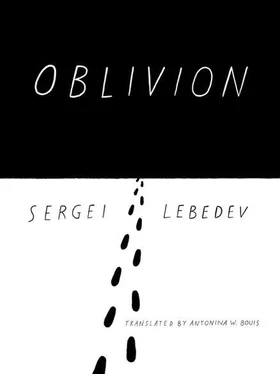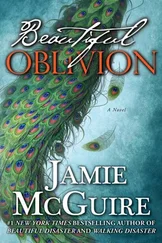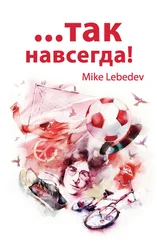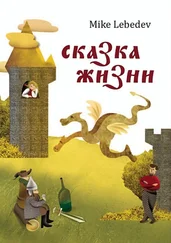The dead man, almost against his will, protected me; that attempt at humanity had worked. If I had abandoned him, I would not have had the right—for myself—to refer to that incident; but I didn’t abandon him and I didn’t turn him in—and now I avoided the sludge of the settling tank where the deceived bird was dying in sticky bubbles.
Their mood had changed sharply; I described the way to the abandoned camp as best I could, but I knew that the younger brother would not travel to rebury his big brother—he would only tell stories about how he grabbed an outside mark, and the mark turned out to be a guy who had seen his brother’s body; gradually the story would mutate to the point of unrecognizability—either I would become a traitor punished by the younger brother, or, on the contrary, I would have carried the fugitive on my back; but all that would be later and for now we drank at the eatery—to friends, to the failure of enemies—and the captain drank with everyone, as if he had never ratted on me.
I planned to go to the cemetery in the morning, to the graves of Grandfather II’s wife and son, but I changed my mind; I sensed that the trip would be the end, that I would have to return after I did it—and I tried to postpone the end.
I wanted to see the place where the old man who was chief of the execution squad got the dose of radiation. The town had its own radiation—the radioactivity of dysfunction, of strain and fracture; I wanted to compare the sensation of the two places to see if they were similar in any way.
Not far out of town, in the mountains, was the ravine where the prisoners dug radioactive ore.
When they were creating the nuclear bomb, every geological expedition looked for that ore whatever else they were doing. Here in the North, they found it. I imagined tens of thousands of people all over the country, in the steppes, the deserts, taiga, and tundra looking for the decaying substance that was fraught with chain reaction, searching for the yellow uranium tars the color of the spots on the skin of poisonous snakes; I pictured Geiger counter needles reacting when they found grains of minerals surrounded by the brown aureole of radioactivity and the sharpened tips of pencils marked the contours of future sites on faded pages of field diaries in graphite.
Searching for substances whose life span is equivalent in duration with human life, searching for short-lived mineral compounds, betrayers of rock that has it own, long life of millions of years; searching for the key to the forces of nature; searching for the accelerator of decay, in a sense the philosopher’s stone commensurate with the philosophy of the new age that seeks means of destruction rather than construction; methods of stopping history, ending time.
Uranium, an element named for the castrated god, the god of time who gave up his place to Cronus and by disappearing made possible the change of generations of the gods—uranium is a sterile creature that cannot give a start to a thing and cannot be smelted into a permanent form like copper or iron; uranium, discovered by Martin Heinrich Klaproth in the year of the start of the French Revolution, the year the Bastille was stormed and the Declaration of the Rights of Man and Citizen was passed—did the German natural philosopher think that the black substance in his test tube would weigh more on the scales of history than all the gold ever extracted by humanity? That for the sake of this substance roads would be built and mines created? Did he hear in the sounds of that year the underground jolts that were predictions of future revolutions—and the revolution that would take up the French revolution’s red flag?
To get to the ravine, you had to go past abandoned plants and an unfinished enrichment factory. It was the place where the outskirts of the city joined the mining plant’s territory, creating a no-man’s land where no one lived, not even tramps and feral dogs; while the ruins of factories and houses along the edge of town smelled of neglect, here it seemed that the space itself was decaying and filling up with caverns.
There were fireplaces and rusted snarls of cord—the metal guts of tires—everywhere; splashes of rust, cisterns knocked on their sides, smashed power line towers, hunks of metal, twisted, bent, hacked by giant scissors; truck tire tracks that looked as if someone had intentionally tortured the earth. Among the skeletons of barracks, like trees chopped by mortars in a military dream, stood wastewater risers; huge fountains of water gushed pointlessly from forgotten wells. None of the usual litter there—cans, papers, wrappers, scraps of food—only the remains of former habitation, warped metal and murdered wood.
I couldn’t walk through that space; here at the juncture of the town and the industrial zone, everything that in other places nearby was practically hidden, masked by architecture and landscape, was laid bare; the mutilated space itself did not elicit fear but the reality of the inner lives of the people whose effort and determination, or rather, lack of effort and absence of determination gave rise to it.
Once, several geological institutes had their laboratories here; the barracks frames were all that was left, everything else was looted when the labs were closed. Among the chopped and charred slate were pieces of core samples—long cylinders of rock raised from the depths of holes. Usually they were laid out in special boxes meter by meter, and the meter columns of samples gave a reading of the entire vertical of the hole. Those abandoned core samples, overgrown with weeds, pointlessly removed from the ground, from great depths, showed that people left here as if rejecting their work, tossing it aside casually and hastily, and in the vacuum created by their departure, a different life began: the way bindweed takes over old ruins.
Looking at the core samples, I remembered a story that used to be told as a joke; back in the 1980s, a retired driller applied to the Ministry of Geology. He had a project to make use of some of the old holes, which were usually filled with cement to keep the underground water strata from mixing. He proposed turning the holes into cemeteries: burying people vertically, lowering one on top of the other; there were thousands of such holes drilled all over the country, and his explanatory note stated that their total capacity would enable decades of burials, freeing up, he explained scrupulously, the workforce, the cemetery diggers and coffin makers, for other state needs, the word “state” underlined.
The ministry had seen all kinds of proposals: the era had given rise to wild thoughts, the suppressed energy of restructuring and transformations found a way into apolitical and, in that sense, safe technological inventions. The more slowly time flowed, the more alleged inventions appeared that rejected the laws of science, overriding them out of the inventor’s desire, a desire so clearly inept and passionate that it was beyond science; people wanted to change something , and the laws of the natural sciences seemed more malleable than the laws of the social order. But the scientist who proposed vertical cemeteries amazed everyone; and now, standing before the abandoned core boxes, I sensed where that man had come from and what environment had addled his brain.
To get around the ruined land that belonged to no one, I decided to follow the railroad track leading to the mine; women’s voices could be heard above the embankment; I couldn’t make out the words yet, but I could pick up the intonations. The voices did not come from any particular place—the air resonated with them, as if it contained them like a chemical cloud or steam.
Two women were wearily discussing something. From the interjections that arise when vowels are pronounced, lighting a word from within with different emotional tones—a-a, u-u, o-o—you could tell what they were talking about. I got closer and the phrases were clearer. Yesterday Valera said … ate some hot dogs … I have to sleep with him when he’s drunk …. the kids are in the next room … he burned a hole in the pillowcase with his cigarette … started drinking first thing in the morning … he’s trying to get in my daughter’s room …
Читать дальше












